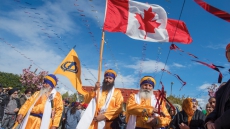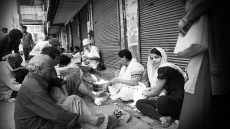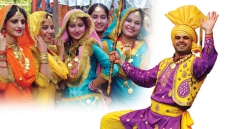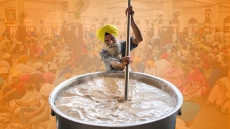The true focus of Vaisakhi has shifted towards other aspects which also hold value, but perhaps divert our attention away from the main purpose.
The Vaisakhi Nagar Kirtan is a well-known public event held in April in Surrey and Vancouver each year, which celebrates the birth of Khalsa, or the Sikh community. It is also commonly known as the Vaisakhi parade where a large assembly of religious floats are organized to travel on a route around the city. Vaisakhi holds great importance among the entire South Asian community, as it represents the Spring harvest season. Vaisakhi also has a rich history which represents many sentiments in the Sikh religion, including sacrifice, selflessness, courage and hope. It is a day to celebrate the Sikh New Year, and thus the community puts on a united front to show their devotion on the auspicious day.

To celebrate, a full day of festivities is planned, and includes religious hymns being sung on nearly every float, martial arts performances, celebration booths and stages, and abundant food being served for free in pop-up tents throughout the route. Many members of the South Asian community dedicate their day to either serving the public by having a food stall of their own, volunteering their time to traffic control and clean-up, or ensuring the event is a safe place for everyone. A lot of the planning and organization is done voluntarily through sheer devotion and desire for the community to make the Vaisakhi Nagar Kirtan a memorable event. The act of selfless service, or ‘seva’, is visible through the contribution of hundreds of people, and this sets a great example for both the younger generation and other communities.

Although this is something to be incredibly proud of, there has been concern of how many of those people truly understand the importance of Vaisakhi, and how this event represents history and culture at its roots. As a historically religious event, it is important for us as a community to recognize the sentiments and value that this event holds for the believers of the religion, which seems to be overshadowed at times by the other appealing factors associated with Vaisakhi.
The true focus of Vaisakhi has shifted towards other aspects which also hold value, but perhaps divert our attention away from the main purpose. For example, many people are more concerned with the perfect outfit they need to pick out for the day, or how they can turn the event into a marketing strategy that ultimately benefits them. While these are valid in their own respect, they should not be taking over the core reason of why Vaisakhi exists. In our excitement, it is easy to want to contribute in our own ways, but as a community we need to take a step back to truly appreciate the tradition and historic value by giving it its own significance.
As a multicultural nation, I feel that the greatest way to appreciate our diversity is to learn about the importance these culturally specific events hold for their respective communities. If we give importance and respect to their uniqueness, we will better understand the way these traditions create meaning and foster unity among others.
This year, I would like to encourage you all to take a moment to think of Vaisakhi as not just a celebration, but a commitment to displaying culture and religion in a way that is inclusive, accepting and representative of the diversity that makes Canada so special.



